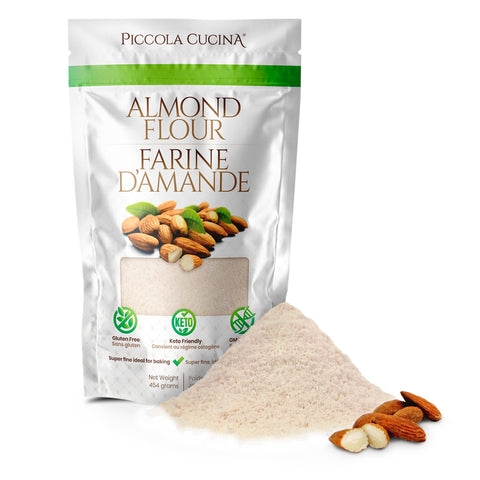How much Almond protein should I eat a day?

Almonds are a good source of protein, healthy fats, vitamins, and minerals. The amount of almond protein you should eat in a day depends on various factors, including your individual nutritional needs, dietary preferences, and overall diet.
As a general guideline, the Recommended Dietary Allowance (RDA) for protein for the average adult is 46 grams per day for women and 56 grams per day for men. These values can vary based on individual factors.
Therefore, another measure to take into account is to consume 0.8 grams of protein per kilogram of body weight, or 0.36 grams per pound, according to the RDA.
For individuals with heightened physical activity levels or specific health objectives, an increased protein intake is often recommended. Some experts propose a range of 1.2 to 2.2 grams of protein per kilogram of body weight, particularly applicable to athletes or those undertaking rigorous physical activities. This serves as guidance for those with more demanding fitness routines.

Almond protein
Almonds contain about 21% protein by weight. This means that for every 100 grams of almonds (about 3.53 oz), you can expect to get approximately 21 grams of protein. Keep in mind that the exact protein content can vary slightly based on factors such as the specific variety of almonds and how they are processed.
Calculating the protein
If you know your daily protein target, you can calculate the amount of almond protein accordingly. For example, if you need 70 grams of protein per day and choose to get some of it from almonds, you would need to consume around 333 grams of almonds (about the weight of a can of soup).

Source: Centers for Disease Control and Prevention; “Nutrition for Everyone”.
The protein in our products
Almond Macaroons:
- Each soft and chewy cookie contains 2 grams of protein.
- It's a sweet treat with a bonus of protein, perfect for satisfying your sweet tooth.

Almond Flour Wraps:
- Each wrap contains 6 grams of protein.
- These wraps are flexible, thick, and won't fall apart. They're not just tasty but also a smart choice for any meal with extra protein.

Almond Flour:
- 6 grams of protein per 28 grams (about 1/4 cup).
- A bakery-quality flour that's light, fluffy, and packed with protein. Perfect for those on a gluten-free or keto-friendly diet.

Including these almond-based products in your diet not only adds a delicious touch to your meals but also provides a good source of plant-based protein.
Keep in mind
While almonds are a nutritious food, they also contain calories, so it's important to consider your overall calorie intake and dietary balance. Additionally, it's a good idea to incorporate a variety of protein sources into your diet to ensure you're getting a diverse range of nutrients.
If you have specific health concerns or dietary restrictions, it's always advisable to consult with a healthcare professional or a registered dietitian who can provide personalized advice based on your individual needs and goals.
References:
Centers for Disease Control and Prevention. (n.d.). Adults’ daily protein intake much more than recommended. Centers for Disease Control and Prevention. https://blogs.cdc.gov/nchs/2010/03/03/953/
Dietary reference intakes definitions - canada.ca. (n.d.-b). https://www.canada.ca/content/dam/hc-sc/migration/hc-sc/fn-an/alt_formats/hpfb-dgpsa/pdf/nutrition/dri_tables-eng.pdf
How much protein do you need every day?. Harvard Health. (2023, June 22). https://www.health.harvard.edu/blog/how-much-protein-do-you-need-every-day-201506188096
U.S. Department of Health and Human Services. (n.d.). Office of dietary supplements - nutrient recommendations and databases. NIH Office of Dietary Supplements. https://ods.od.nih.gov/HealthInformation/nutrientrecommendations.aspx
